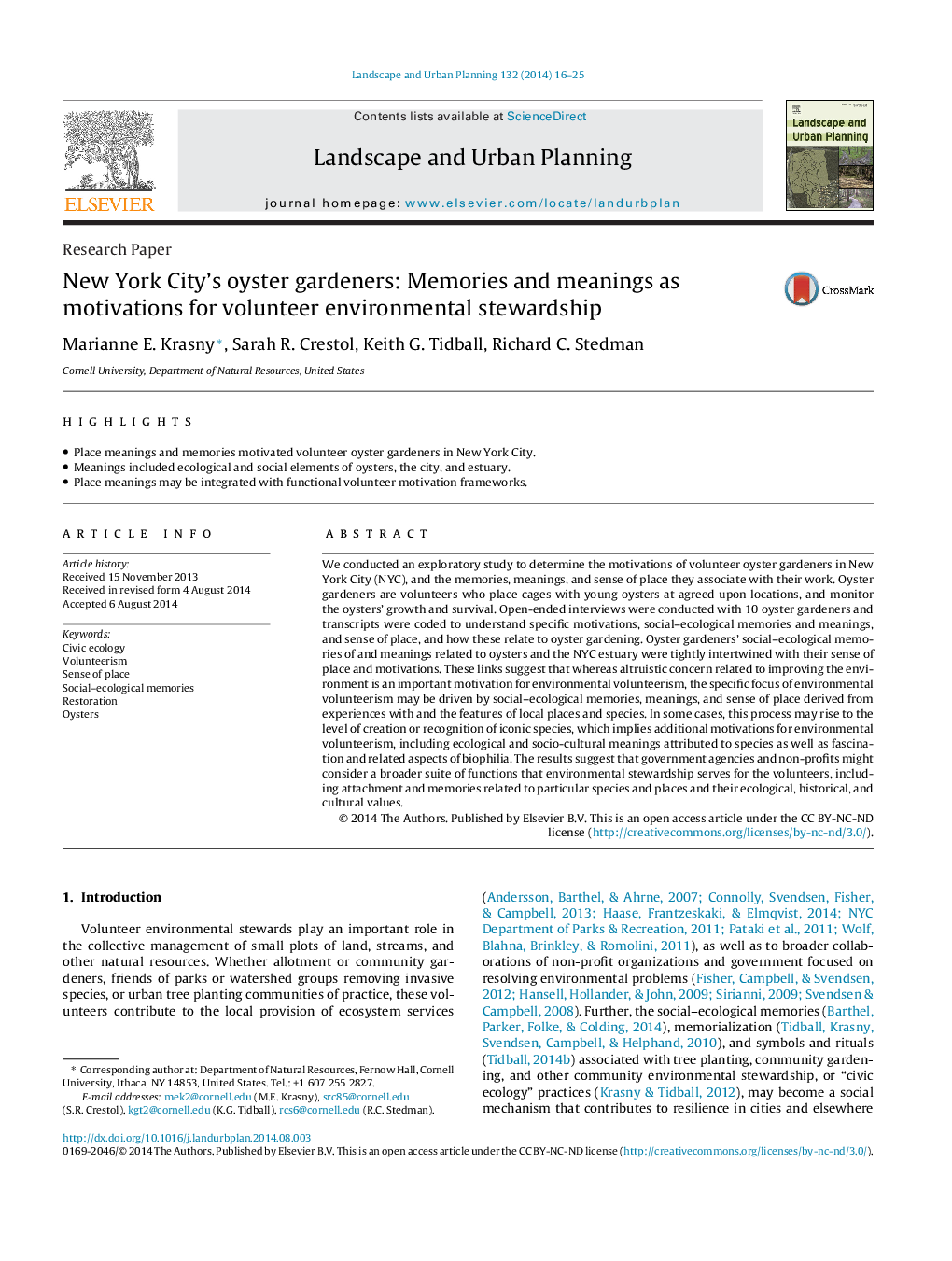| Article ID | Journal | Published Year | Pages | File Type |
|---|---|---|---|---|
| 7461250 | Landscape and Urban Planning | 2014 | 10 Pages |
Abstract
We conducted an exploratory study to determine the motivations of volunteer oyster gardeners in New York City (NYC), and the memories, meanings, and sense of place they associate with their work. Oyster gardeners are volunteers who place cages with young oysters at agreed upon locations, and monitor the oysters' growth and survival. Open-ended interviews were conducted with 10 oyster gardeners and transcripts were coded to understand specific motivations, social-ecological memories and meanings, and sense of place, and how these relate to oyster gardening. Oyster gardeners' social-ecological memories of and meanings related to oysters and the NYC estuary were tightly intertwined with their sense of place and motivations. These links suggest that whereas altruistic concern related to improving the environment is an important motivation for environmental volunteerism, the specific focus of environmental volunteerism may be driven by social-ecological memories, meanings, and sense of place derived from experiences with and the features of local places and species. In some cases, this process may rise to the level of creation or recognition of iconic species, which implies additional motivations for environmental volunteerism, including ecological and socio-cultural meanings attributed to species as well as fascination and related aspects of biophilia. The results suggest that government agencies and non-profits might consider a broader suite of functions that environmental stewardship serves for the volunteers, including attachment and memories related to particular species and places and their ecological, historical, and cultural values.
Related Topics
Life Sciences
Agricultural and Biological Sciences
Ecology, Evolution, Behavior and Systematics
Authors
Marianne E. Krasny, Sarah R. Crestol, Keith G. Tidball, Richard C. Stedman,
